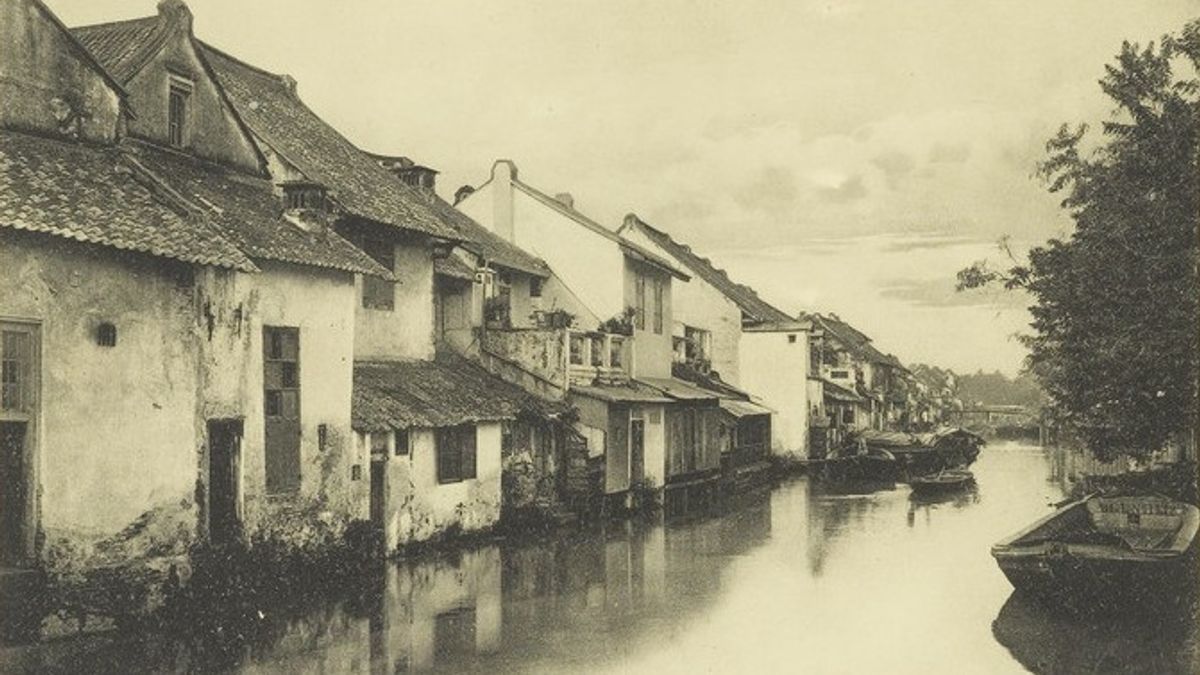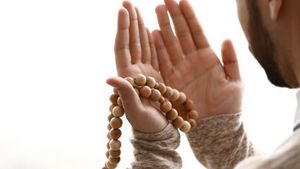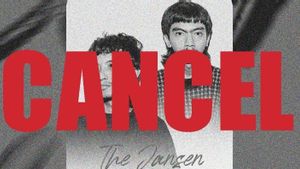JAKARTA - The Dutch colonial era has had a major impact on the environmental sector. The lust of the Dutch trading airline, the VOC looking for profit, became the estuary. The VOC cleared a lot of land outside Batavia. For fields to factories. Deforestation is inevitable. Natural karma is coming soon. Land clearing comes at a price with disastrous consequences. The Company helter-skelter was hit by disasters that invited death: floods, pollution, and disease outbreaks.
Maluku (Ambon) was once the center of the first VOC government in the archipelago. The Dutch took over the city from the Portuguese government. For the VOC, Maluku was once considered the main heart of the spice monopoly. That view endured during the three governors general in power, from 1610-1619.
However, along the way, the VOC began to hesitate in culting Maluku as its headquarters. Small trading profits are the reason. The Dutch also began to try to look at other cities that were more strategic.
The western part of Indonesia was immediately ogled by the Dutch. Banten had become a target. But don't. Banten's strength is considered too strong. The VOC turned its gaze to Jakarta or Jayakarta, Banten's territory. In his view, Jayakarta was relatively easier to conquer.
The Netherlands is scheming. They invited the Jayakarta rulers to cooperate in trade. The Dutch were also allowed to form a fort on Onrust Island. In fact, it was there that the Governor-General of the VOC twice --1619-1623 and 1627-1629- Jan Pieterszoon Coen captured Jayakarta. He had lost but returned to attack again to win.
“In May 1619, Coen sailed back to the port with seventeen ships. On May 30, he attacked the city, razed it to the ground, and repelled the Banten army. The VOC trading center in Batavia, which stands tall among the ruins of Jayakarta, is now the headquarters of the vast VOC trading empire.”
“This attempt to seize Batavia was the most important step taken by the Dutch since their first ship sailed to the East. The VOC can now build a military and administrative center in a relatively safe place for warehousing and exchange of goods, which is located in the western part of the archipelago and easily reaches trade routes to Eastern Indonesia, the Far East, and Europe," said MC Ricklefs in the book History of Indonesia. Modern 1200–2008 (2008).

On the rubble, Coen founded the City of Batavia. Coen built a series of offices, warehouses, and other facilities for VOC soldiers. Coen and the governor general after him even made Batavia the center of all VOC powers. Slowly the VOC began to play its tactics to monopolize the spice trade in Java.
The VOC then went to war with the Mataram Kingdom. Then Banten. One of the keys to the VOC's victory was to perpetuate the divide et impera strategy (divide politics). This victory forced the two kingdoms to sign peace treaties, Banten, in 1659 and Mataram in 1677. After that the VOC continued to expand its monopoly on agricultural products in the archipelago.
“With their powerful weapon which is well-known in Indonesian history under the name 'devide et impera' or divide and colonize, finally the Dutch colonialists were able to control both the Banten kingdom and the Mataram kingdom.”
"Even the Mataram Kingdom, which during the reign of Sultan Agung Hanyakrakusuma (1613-1645) reached the peak of its glory, because of the Dutch 'devide et impera' weapon, finally split into small kingdoms that were under Dutch colonial rule," wrote Sagimun MD. in the book Jakarta from the Edge of the Water to the Proclamation City (1988).
DeforestationThe peace agreement between the two kingdoms became the door for the Dutch to control natural resources in the archipelago. VOC investment faucets began to be increased to the maximum. The Company began to control the lands outside the walls of Batavia: Ommelanden. The Dutch used the land clearing as a faucet for money which could later be turned into rice fields, fields, plantations, and factories.
The Netherlands does not want to lose. They think that cultivating the land will cost a lot of money. Especially if you have to manage it. As a solution, lands in the Ommelanden area were then given and sold to private parties. The land was fully controlled by the majority of Dutch and Chinese businessmen. In clearing land, entrepreneurs start clearing forests by logging. There are also those who burn the forest.
The action of logging is getting more massive – if you don't want to say it's an act of deforestation. Moreover, logging is done every day. Entrepreneurs play a major role in the destruction of the environment by hiring a group of Bumiputras to carry out logging. They carry out their logging tasks using only simple tools in the scorching heat such as axes, machetes, shovels, saws and compasses.
“The exploitation of the archipelago's forests has intensified in the colonial era since 1696. The damage to forests during the Dutch colonial period became even worse after the VOC took advantage of the cooperation between ethnic Chinese businessmen and the kingdom that existed before the arrival of the Dutch into the archipelago. The Dutch government gave the VOC a logging permit in Java and Batavia to produce wood as raw material for shipbuilding in 1611," explained Syukur Umar in the book Economic Perspectives on Forest Management Units (2020).
Basically, the VOC did not prohibit the felling of trees, as long as it did not result in deforestation. The ban was massively announced by the VOC. But reality says otherwise. Entrepreneurs can actually cut down trees, even clear the forest as long as they ask for permission.
For the VOC, asking permission was another way to make a profit. In a sense, for every tree that is cut down, the entrepreneur must pay “justice money” to the Company. Moreover, wood or charcoal from felling had to be sold to the VOC. Because of this, the tree felling affair became a new field of corruption for high-ranking VOC officials.
The emergence of disaster
Abundant profits increasingly make the VOC ignore the environment. As a result, disaster began to lurk in the center of the Company's government in Batavia. Floods are one of the most common disasters. Barren forest conditions make Batavia always a regular flood during heavy rains.
Deforestation has also contributed to the emergence of many factories -- from sugar factories to wine refineries. Waste from factories is directly dumped into nearby rivers. Batavia's climate became unhealthy. As a result, rivers are polluted. Polluted rivers wreak havoc. Which, contributed to the outbreak of diseases such as malaria and cholera.
The death rate of Europeans in Batavia increased due to the plague. The hospital is full. The VOC was too overwhelmed to make prevention efforts. Because, the death of Europeans in Batavia at that time reached the highest number. People in Batavia remember the government's greed by playing a play on Batavia's nickname, Koningen van het Oosten (Queen of the East) by changing it to Kerkhoven van het Oosten (Grave in the East).
“The felling of trees for sugar companies and even more so for the cultivation of rice, which requires irrigation, has a significant impact on rivers. Every year a group of 'Javanese mud' is brought in from Cirebon to dredge the canal ditch, but they are unable to withstand the silting; the coastline is rapidly shifting.”
“In 1733, like a thunderbolt in broad daylight, Batavia was ravaged by an outbreak of Malaria caused by the Anopheles sundaicus mosquito, which thrives in brackish water and is abundant along the coast. The malaria outbreak was suspected as a direct result of the construction of fish ponds at the mouth of the river by the sea. Every year thousands of people die,” concluded historian Hendrik E. Niemeijer in the book Batavia of the XVII Century Colonial Society (2012).
*Read other information about the Dutch colonial period or read other interesting articles from Detha Arya Tifada.
Other MEMORIESThe English, Chinese, Japanese, Arabic, and French versions are automatically generated by the AI. So there may still be inaccuracies in translating, please always see Indonesian as our main language. (system supported by DigitalSiber.id)











